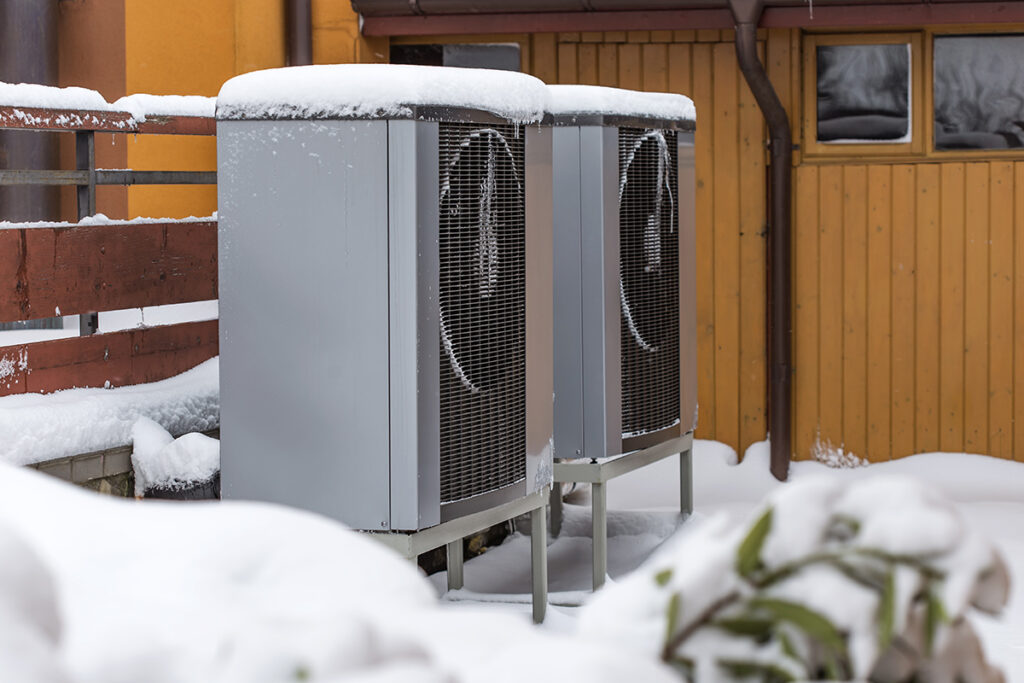Heat pumps are on everybody’s minds recently and with the government incentivizing that we all go ‘green’. Now, like me, the first thing you would have thought about is how do I reduce my own carbon footprint? Now you can cycle or walk to work, town etc. You can even go on a fully plant-based diet! But one of the biggest ways and the easiest is to reduce the amount of energy you use in your home, particularly your central heating and hot water use.
Making sure your boiler is properly serviced and maintained is a start, but you can go another step further. You could invest in one of the many environmentally friendly options available in this instance an air or ground heat pump! (Also known as an Air Source Heat Pump or ASHP)
Now before you go and ring a fitter to rip out your boiler and install a heat pump you should consider if a heat pump is really what you need and does your home meet the requirements for the heat pump to work efficiently? Well read on and find out the pros and cons of heat pumps!

The first and major advantage a heat pump gives you is that it drastically reduces your homes carbon footprint as it uses the air outside your property to heat your home and cool it! On average for every 3 to 4 units of energy generated from the air by an air source heat pump is the equivalent to only 1 unit of electricity being used. Cutting not only your energy bills but your emissions.
Unlike boilers that need to be replaced every 10 years or so, a heat pump can last up to 20 even 25 years with proper maintenance and care.
Unlike boilers when a fault or low performance occurs you can diagnose and solve these problems yourself, without the need to call out an emergency plumber. Some of these tasks to help maintain peak performance includes cleaning filters, making sure the unit isn’t blocked or choked by leaves or dust, checking refrigerant levels, and looking for leaks. Anything more you should contact a professional heat pump installer. It is also best practice to have the unit serviced once a year.
As mentioned, a heat pump can cut your energy bills along with your carbon footprint. This is because you will be using the air from outside your home to heat and cool your home. Savings can vary but you will see a major difference if you are converting over from an electric or coal heating system. You can save up to £1335 using an air source heat pump.
The installation of a heat pump can take only two days! And as an added bonus the installation of an air source heat pump doesn’t usually need any planning permission to install. But do check with your local authority just to make sure.

Now while the installation may be easy the initial cost might not be easy to swallow. The average installation cost of an air source heat pump can vary from £8000 to £18,000 while the average cost for a ground source pump can range from £20,000 to £45,000, that’s not including other potential costs that might be incurred! Other charges may apply due to the size of your property and other requirements.
While you may be helping in saving the planet you will be making some noise doing so. When running air source heat pumps do produce some noise, equivalent to an air conditioning unit. But if properly maintained and installed the noise produced can be negligible.
If you want to get the most out of your heat pump you will need to make sure that your home is already well insulated. But this negative can apply to every type of heating system not only heat pumps.
If heat escapes from the usual suspects (windows, doors and walls) you will need to use more energy to keep it warm! So, make sure your home is well insulated before inquiring about a heat pump.
While air source heat pumps can work in temperatures as low as -20°C (as cold as your freezer!) their performance can take a knock. Since the air outside is colder the heat pump won’t push out the same level of heat as above 0°C.
Now if you are one of the lucky ones and have cheap mains gas you could potentially be minuscule or you could end up spending more on running costs. Having a heat pump while great for the environment might not be so friendly on your wallet.
So, there you have it, now you have the information you need to make an informed decision on whether or not a heat pump is for you. As always, we advise that you should get in touch with a professional for further information regarding heat pumps. Also, check if any incentives or grants are available to help mitigate some of the large costs of installing a heat pump to heat your home.
While you are here why not read into other ways you can make your home more eco-friendly including Guide to Saving Fuel And Being A More Efficient Driver and Faith in Nature why you should use their products in our ever expanding blog section.